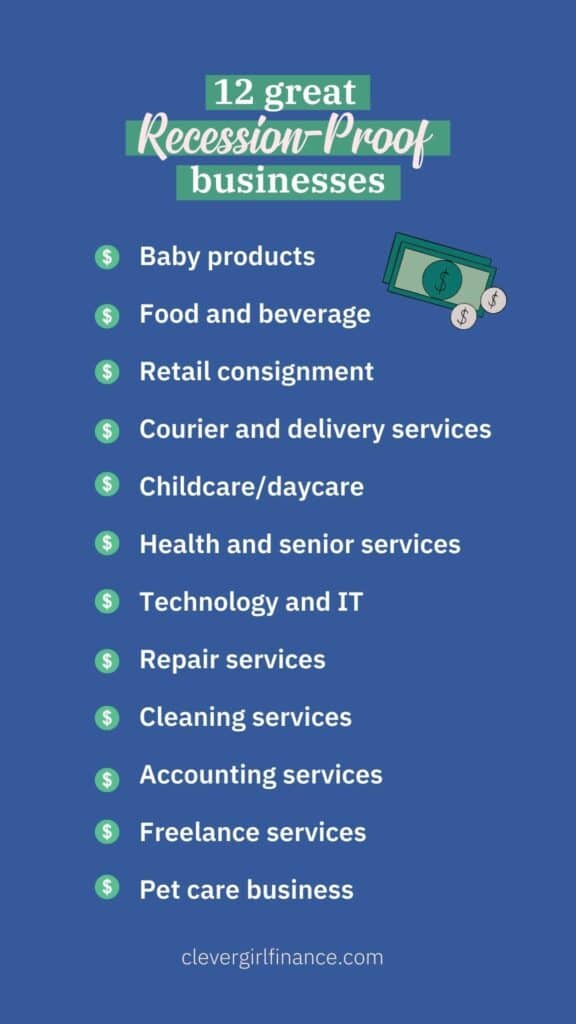
There are several things you need to be aware of if you want to invest in IPO stocks. Investing in IPO stocks carries many risks, and there are certain regulations you must follow. Continue reading to find out more about investing in IPO stocks. This article will discuss the importance understanding IPO regulations. You will also learn how IPO shares are priced and how you can buy IPO securities.
Investing in ipo stocks
IPO stocks are a great way for you to invest in a new company and watch your investment grow. An IPO will give you the chance to become a shareholder before the rest. This gives you the opportunity to witness the company's rapid growth and can help increase your wealth many times over. It's impossible to predict when a company will have a great product or gain momentum.
Investing in IPO stocks is a lucrative investment opportunity, but you have to understand the risks involved. These companies are still relatively young, and their prices can be volatile. Many IPOs are not as successful as they seem. This means you will need to do your research to make sure the company is right for you.

Regulations
Regulations for IPO stocks regulate the offering of securities on public markets. Generally, an IPO must also be registered with Securities and Exchange Commission. The SEC also governs the secondary market for listed securities. Companies are required to adhere to ongoing reporting obligations. IPOs are also subject to regulatory oversight.
The IPO markets are cyclical. There are many factors that influence how much activity. The market saw an explosion in 2013 and 2014, but it suffered a major slowdown in 2015 2016 and 2015. The market rebounded in 2017, and it started to gain momentum again. In the first quarter of 2020, it appeared that IPO activity would remain strong, but the COVID-19 pandemic brought the market to a virtual halt.
Stocks of ipo are worth their weight
Many factors can affect the value of IPO shares. The number of shares available is one of the most important factors. A greater number of shares may mean a higher value. The share's market value can also depend on the company’s financial performance. A number of factors affect the value of an IPO. This includes the current price of shares similar to the company's. The market trend and the potential growth of the company are also important factors.
Stocks can go up quickly when they are issued in the right environment. Alphabet, Google's parent company, saw a 300% increase in its stock price over the past 15 months. However, new IPOs are often volatile and don't always yield impressive gains. Facebook and Alibaba are examples of recent IPOs.

Risks of investing in ipo stocks
Although IPOs are a great investment opportunity, it is important to be cautious. These investments can be held for long periods of time and come with no guarantees. The IPO company is often privately owned, which means that there is no guarantee that the stock will increase in value. There is a high rush to sell IPO shares because they are subject to lock in periods.
Another risk of IPO investments being speculative is the nature of the investment. Before investing in an IPO, you should consult your brokerage firm. Based on your income, net worth, and risk tolerance, they can tell you if an IPO would be a good fit. If a broker feels an IPO is not suitable, they might not recommend it.
FAQ
What is security in the stock market?
Security is an asset that produces income for its owner. Shares in companies is the most common form of security.
Different types of securities can be issued by a company, including bonds, preferred stock, and common stock.
The earnings per shares (EPS) or dividends paid by a company affect the value of a stock.
When you buy a share, you own part of the business and have a claim on future profits. If the company pays you a dividend, it will pay you money.
Your shares can be sold at any time.
What are the benefits of stock ownership?
Stocks are more volatile than bonds. If a company goes under, its shares' value will drop dramatically.
The share price can rise if a company expands.
To raise capital, companies often issue new shares. This allows investors to purchase additional shares in the company.
Companies borrow money using debt finance. This allows them to get cheap credit that will allow them to grow faster.
People will purchase a product that is good if it's a quality product. The stock will become more expensive as there is more demand.
The stock price should increase as long the company produces the products people want.
Why is it important to have marketable securities?
The main purpose of an investment company is to provide investors with income from investments. It does this through investing its assets in various financial instruments such bonds, stocks, and other securities. These securities offer investors attractive characteristics. They can be considered safe due to their full faith and credit.
The most important characteristic of any security is whether it is considered to be "marketable." This refers to how easily the security can be traded on the stock exchange. A broker charges a commission to purchase securities that are not marketable. Securities cannot be purchased and sold free of charge.
Marketable securities include common stocks, preferred stocks, common stock, convertible debentures and unit trusts.
Investment companies invest in these securities because they believe they will generate higher profits than if they invested in more risky securities like equities (shares).
How are shares prices determined?
The share price is set by investors who are looking for a return on investment. They want to earn money for the company. They then buy shares at a specified price. Investors will earn more if the share prices rise. Investors lose money if the share price drops.
Investors are motivated to make as much as possible. This is why they invest in companies. It allows them to make a lot.
Statistics
- Ratchet down that 10% if you don't yet have a healthy emergency fund and 10% to 15% of your income funneled into a retirement savings account. (nerdwallet.com)
- For instance, an individual or entity that owns 100,000 shares of a company with one million outstanding shares would have a 10% ownership stake. (investopedia.com)
- US resident who opens a new IBKR Pro individual or joint account receives a 0.25% rate reduction on margin loans. (nerdwallet.com)
- Our focus on Main Street investors reflects the fact that American households own $38 trillion worth of equities, more than 59 percent of the U.S. equity market either directly or indirectly through mutual funds, retirement accounts, and other investments. (sec.gov)
External Links
How To
How to Open a Trading Account
It is important to open a brokerage accounts. There are many brokerage firms out there that offer different services. There are some that charge fees, while others don't. Etrade (TD Ameritrade), Fidelity Schwab, Scottrade and Interactive Brokers are the most popular brokerages.
Once your account has been opened, you will need to choose which type of account to open. Choose one of the following options:
-
Individual Retirement Accounts (IRAs).
-
Roth Individual Retirement Accounts
-
401(k)s
-
403(b)s
-
SIMPLE IRAs
-
SEP IRAs
-
SIMPLE 401(k)s
Each option has its own benefits. IRA accounts have tax advantages but require more paperwork than other options. Roth IRAs are a way for investors to deduct their contributions from their taxable income. However they cannot be used as a source or funds for withdrawals. SIMPLE IRAs can be funded with employer matching funds. SEP IRAs work in the same way as SIMPLE IRAs. SIMPLE IRAs have a simple setup and are easy to maintain. These IRAs allow employees to make pre-tax contributions and employers can match them.
Finally, determine how much capital you would like to invest. This is known as your initial deposit. You will be offered a range of deposits, depending on how much you are willing to earn. Depending on the rate of return you desire, you might be offered $5,000 to $10,000. The conservative end of the range is more risky, while the riskier end is more prudent.
Once you have decided on the type account you want, it is time to decide how much you want to invest. There are minimum investment amounts for each broker. These minimum amounts can vary from broker to broker, so make sure you check with each one.
After choosing the type account that suits your needs and the amount you are willing to invest, you can choose a broker. Before selecting a brokerage, you need to consider the following.
-
Fees-Ensure that fees are transparent and reasonable. Many brokers will offer trades for free or rebates in order to hide their fees. However, some brokers raise their fees after you place your first order. Avoid any broker that tries to get you to pay extra fees.
-
Customer service: Look out for customer service representatives with knowledge about the product and who can answer questions quickly.
-
Security - Make sure you choose a broker that offers security features such multi-signature technology, two-factor authentication, and other.
-
Mobile apps - Make sure you check if your broker has mobile apps that allow you to access your portfolio from anywhere with your smartphone.
-
Social media presence - Find out if the broker has an active social media presence. It may be time to move on if they don’t.
-
Technology - Does this broker use the most cutting-edge technology available? Is the trading platform easy to use? Are there any issues when using the platform?
Once you have selected a broker to work with, you need an account. Some brokers offer free trials, while others charge a small fee to get started. Once you sign up, confirm your email address, telephone number, and password. Next, you will be asked for personal information like your name, birth date, and social security number. Finally, you will need to prove that you are who you say they are.
Once verified, you'll start receiving emails form your brokerage firm. These emails will contain important information about the account. It is crucial that you read them carefully. These emails will inform you about the assets that you can sell and which types of transactions you have available. You also learn the fees involved. Keep track of any promotions your broker offers. You might be eligible for contests, referral bonuses, or even free trades.
Next, open an online account. Opening an account online is normally done via a third-party website, such as TradeStation. These websites are excellent resources for beginners. When you open an account, you will usually need to provide your full address, telephone number, email address, as well as other information. After you submit this information, you will receive an activation code. You can use this code to log on to your account, and complete the process.
Once you have opened a new account, you are ready to start investing.